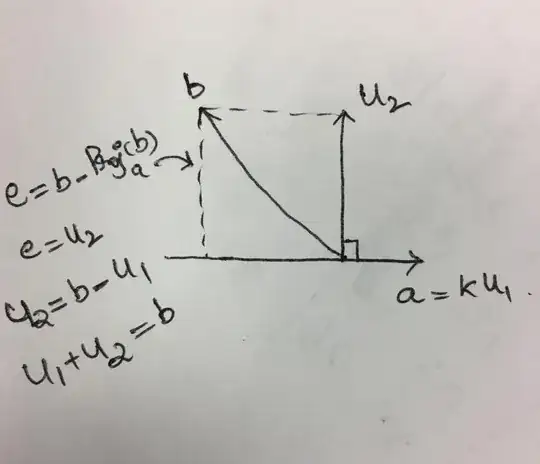If $a=(12,5)$ and $b=(6,8)$ give two orthogonal vectors $U_1$ and $U_2$ such that:
$1)$ $U_1$ lies in $a$
$2)$ $U_1+U_2=b$
I am not really sure what the problem is even asking and I would like some assistance in understanding what the problem is asking about.
I have a vague idea on the problem as it is supposed to require some sort of usage of projections but I do not know how projections apply in this problem.
